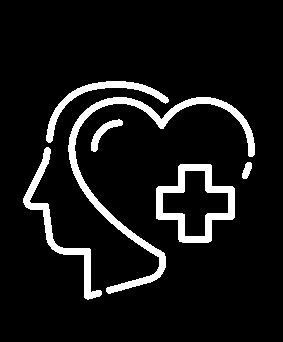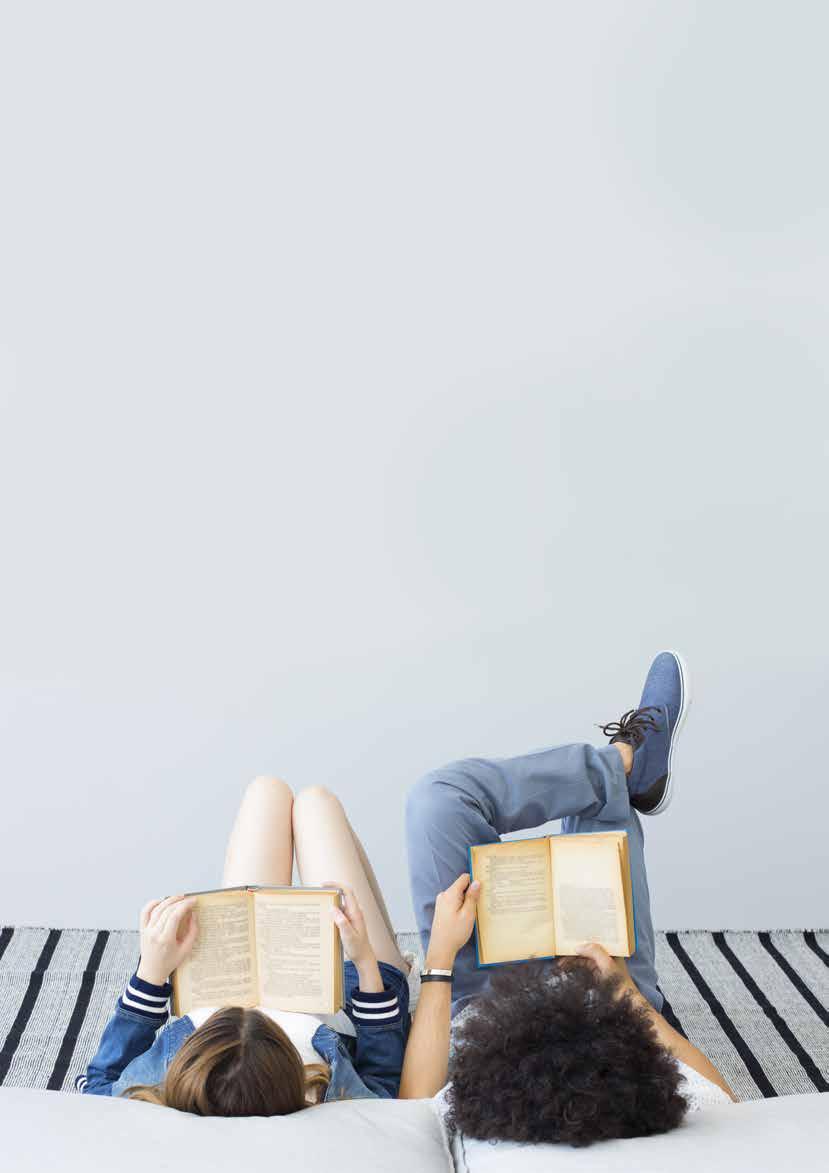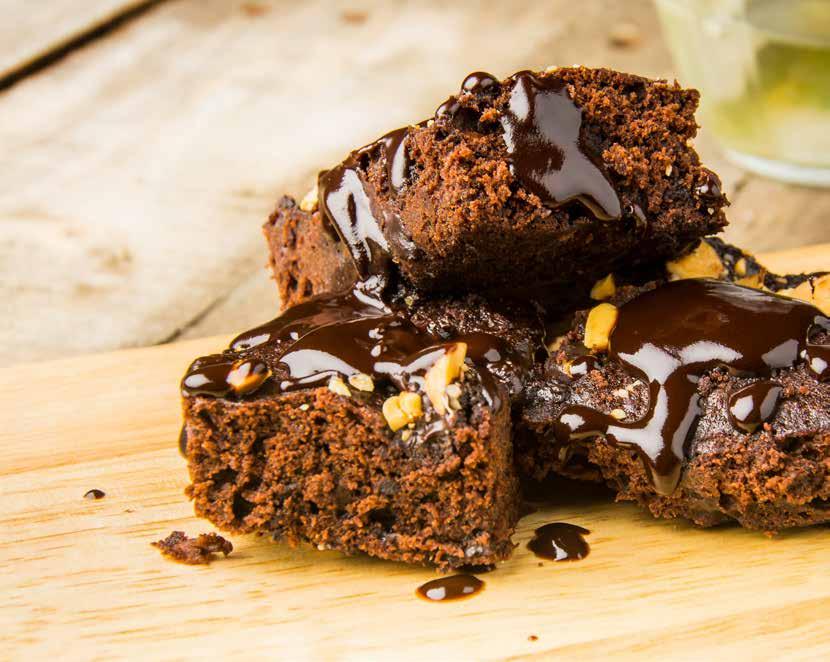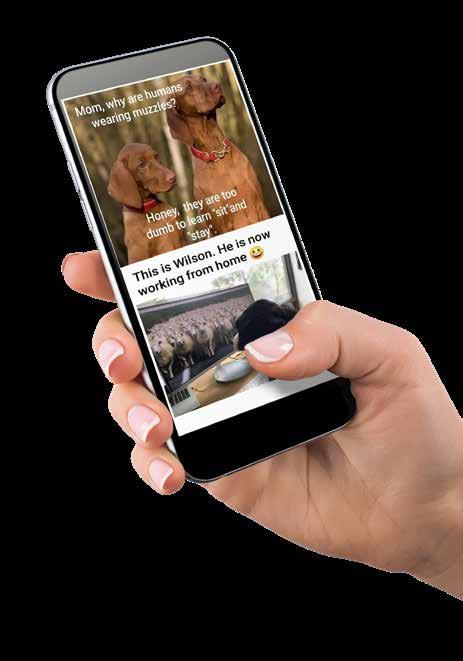
4 minute read
The dark side of life
As medical science battled to prevent Coronavirus enveloping the world in a shroud of fear and gloom, social media turned to the meme to spread a little light relief
You know the bit. That final sequence in Monty Python’s Life of Brian, where all the prisoners have been tethered to their crosses for crucifixion, the People’s Front of Judea have congratulated Brian of Nazareth on his forthcoming martyrdom, and the Judean People’s Front have made their final act of defiance.
Advertisement
And then, just as he is about to succumb to the inevitable, a fellow prisoner urges our tragic, wrongly identified hero to, “always look on the bright side of life”.
It is a classic example of what is often termed gallows humour, the ability to look for a laugh in the bleakest, the most hopeless of situations. of World War I or the prisoner of war camps in World War II – helped to bolster spirits among the working classes, the blending of farce and low comedy did not earn a label until the 1960s when Joseph Heller’s Catch-22 was published and Stanley Kubrick’s Dr Strangelove hit the cinemas.
Along with its cousins, black comedy and dark humour, this strain of comedy has become entwined into the very fabric of Britishness, and goes some way to explaining why the Bright Side of Life and Pink Floyd’s Comfortably Numb are among the most requested music at funerals. At first the memes were straightforward and came largely from the ‘get a grip’ camp. For example, when lockdown was announced, overlaid on a solemn picture of a soldier, standing head bowed, was the message: “Your grandparents were asked to go to war. You are being asked to sit on a couch. You can do this.”
Although prevalent in times of war, when the mix of morbid and ghastly themes to underscore the futility and senselessness of a situation – think life in the trenches However, the initial indication the stiff upper lip was starting to break into a smirk came with the American church style billboard: “Whoever said one
Since then, lampooning taboo subjects has been seen for what it is: an injection of much-needed humour to lighten desperate situations and ease mental stress, proving once and for all that laughter is the best medicine.
So, when Coronavirus unleashed unprecedented chaos across the world, social media stuck up its collective hand and said: hold our beer, we’ve got this…
person can’t change the world never ate an undercooked bat.”
And then the big guns came out, reacting to every development with a pun and a quip. “Day 4 of social distancing. Struck up a conversation with a spider today. Seems nice. He’s a web designer.”
“Got to that stage of lockdown where Jolene can come and take my man.”
“Why haven’t the Government classed seagulls as quay workers?”
No-one was safe. In response to the Joe Wicks home workout phenomenon, came the Facebook post: “Got up this morning and ran round the block 5
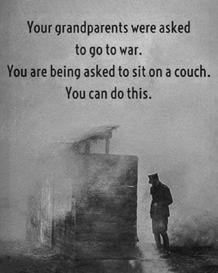
times. Then I got tired, so I picked up the block and put it back in the toy box.”
And the frailties of families cooped up in quarantine was ably coupled with the salute to our frontline health heroes: “Quarantine survival tip #463: Empty your glass bottles into the recycling bin at 8pm on a Thursday so the NHS clapping drowns out the sound of your household’s descent into alcoholism.”
Similarly, there was a boozy response to the news that craft distilleries were stepping in to fill the gaps as hand sanitizers became as rare as unicorns on a night out. Across a picture of a relaxing Victorian maid was the speech bubble: “I’ve been trying to make hand sanitizer but it’s come out as rum and coke again…”
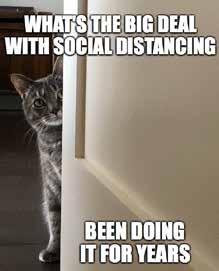
Of course, the images that really work are stills from blockbuster movies –
since COVID-19’s relentless advance, anything to do with masks invariably involves Darth Vader – while nothing illustrates mankind’s stupidity, particularly regarding the Government’s ‘stay at home’ warning, than a photo of our ‘dumb’ animals.
However, nothing sums up social media’s attempt to lift the fear and gloom over the pandemic better than this riposte to criticism from Word Porn, the internet’s purveyor of the pithy and prophetic: “Friendly reminder that in times of adversity and stress, people use humour as a coping mechanism for the sake of their mental health. It doesn’t mean that the current events are not being taken seriously.”
Amen to that.

*All images featured here were sourced from Facebook


